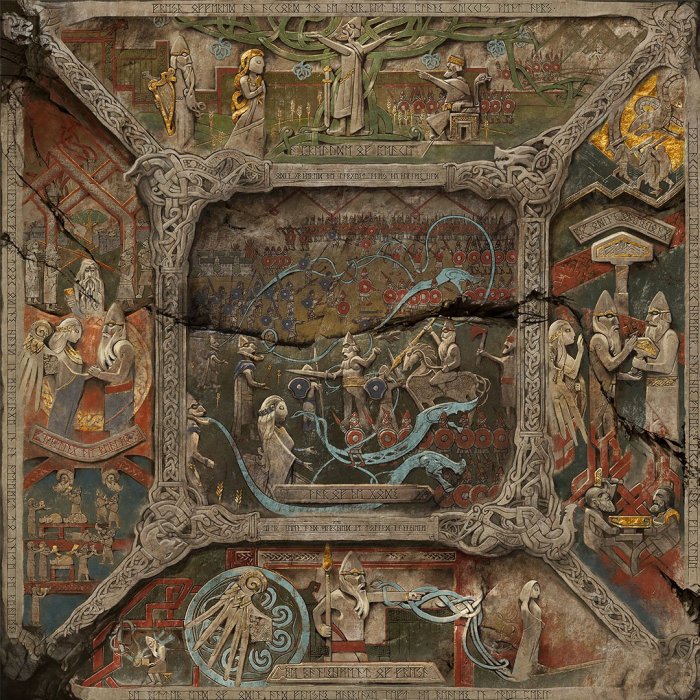Revere as a god crossword clue – a cryptic conundrum that beckons us to explore the depths of reverence, deification, and the enigmatic bond between mortals and the divine. Join us as we unravel the layers of this intriguing concept, tracing its historical roots, cultural significance, and modern-day manifestations.
Delving into the religious realm, we’ll shed light on the profound significance of revering individuals as gods, examining the concept of deification and its implications throughout history and across diverse cultures. We’ll uncover the reasons why certain historical figures have been elevated to divine status, exploring the motivations and beliefs that have shaped these extraordinary narratives.
Revere as a God Crossword Clue
The crossword clue “revere as a god” typically refers to the concept of deifying or worshipping an individual or entity as if they were a divine being.
Words or phrases that could fit this clue include:
Examples
- Idol
- Deity
- Worship
- Veneration
- Adoration
Religious Significance of Revere as a God: Revere As A God Crossword Clue

The concept of revering someone as a god holds profound religious significance across various cultures and historical contexts. Deification, the process of elevating a mortal to divine status, has been practiced throughout history, reflecting the human need for transcendence and connection with the divine.
In ancient Greece and Rome, deification was a common practice reserved for emperors, heroes, and other exceptional individuals. The Greeks believed that certain mortals possessed divine qualities and could ascend to the status of gods after death. The Romans adopted this practice, using it to legitimize the authority of their emperors and strengthen their political power.
Historical and Cultural Implications
Deification has played a significant role in shaping religious beliefs and practices throughout history. In some cultures, deified individuals became the focus of religious cults and rituals, with their followers believing in their divine powers and seeking their intercession. The deification of rulers, such as the pharaohs of ancient Egypt, served to reinforce their political authority and create a sense of divine legitimacy.
In modern times, the concept of deification has been reinterpreted and applied to various contexts. Some religious movements and spiritual practices elevate certain individuals to the status of saints or enlightened beings, recognizing their exceptional spiritual qualities and their ability to serve as guides and intercessors.
Historical Figures Revered as Gods

Throughout history, numerous individuals have been revered as gods or divine beings by various cultures. These figures often possessed extraordinary abilities, leadership qualities, or played significant roles in shaping their societies.
The following table provides a glimpse into some of the most prominent historical figures who have been accorded divine status:
| Name | Culture | Reasons for Deification |
|---|---|---|
| Alexander the Great | Ancient Greece | Military conquests, charisma, and leadership |
| Julius Caesar | Ancient Rome | Political power, military victories, and supposed divine lineage |
| Qin Shi Huang | Ancient China | Unification of China, authoritarian rule, and construction of the Great Wall |
| Ashoka the Great | Ancient India | Expansion of the Mauryan Empire, conversion to Buddhism, and promotion of non-violence |
| Emperor Jimmu | Ancient Japan | Legendary founder of the Japanese imperial line |
| Cleopatra VII | Ancient Egypt | Political power, beauty, and association with the goddess Isis |
Modern-Day Reverence as a God
In the contemporary era, the concept of revering individuals as gods has taken on a new dimension. While traditional notions of deities may have waned, the idolization of certain individuals has emerged as a prevalent phenomenon. This reverence can manifest in various forms, from the veneration of celebrities and public figures to the deification of political leaders or spiritual gurus.The
reasons for this modern-day reverence are multifaceted. In an increasingly complex and uncertain world, people may seek solace and inspiration in the extraordinary achievements or charismatic personalities of others. The rise of social media and the constant bombardment of information have also contributed to the creation of larger-than-life personas, blurring the lines between reality and perception.
Potential Consequences
While the reverence of individuals can provide a sense of belonging and purpose, it also carries potential consequences. Excessive idolization can lead to unrealistic expectations, disillusionment, and a distorted view of human capabilities. Furthermore, the elevation of certain individuals to god-like status can undermine democratic principles and foster a culture of hero worship that stifles critical thinking and accountability.It
is important to approach the reverence of individuals with a balanced perspective, recognizing both the positive and negative aspects. While it is natural to admire and appreciate the contributions of others, it is crucial to maintain a healthy sense of skepticism and avoid the pitfalls of blind adoration.
Cultural and Societal Impact of Revere as a God

The act of revering someone as a god holds immense cultural and societal significance, shaping beliefs, values, and behaviors within communities. It can bring forth positive effects, such as fostering unity, providing spiritual guidance, and inspiring ethical conduct. However, it can also lead to negative consequences, including the suppression of critical thinking, the justification of violence, and the creation of societal divisions.
Positive Impacts
- Unity and Belonging:Reverence for a shared deity can create a sense of community and belonging, uniting individuals through common beliefs and practices.
- Spiritual Guidance:Gods are often seen as sources of wisdom and guidance, providing individuals with moral direction and meaning in life.
- Ethical Conduct:Belief in divine beings can promote ethical behavior, as individuals strive to live in accordance with divine principles and teachings.
Negative Impacts
- Suppression of Critical Thinking:Excessive reverence can lead to the suppression of critical thinking and independent thought, as individuals may be reluctant to question or challenge established beliefs.
- Justification of Violence:In some cases, the belief in a god has been used to justify violence and persecution against those who hold different beliefs.
- Societal Divisions:When reverence for a god becomes exclusive, it can create divisions within society, separating those who adhere to the belief from those who do not.
Artistic Representations of Revere as a God

Artistic representations of revering someone as a god have been prevalent throughout history, transcending cultural and religious boundaries. These works of art often employ powerful symbolism and evocative techniques to convey the profound reverence and awe felt towards the revered individual.
One striking example is the depiction of the ancient Greek gods in classical sculpture. The majestic marble statues of Zeus, Apollo, and Athena embody the divine power and authority attributed to these deities. Their idealized forms, intricate details, and imposing presence evoke a sense of reverence and awe, reflecting the Greeks’ deep belief in their divine nature.
Symbolism and Techniques, Revere as a god crossword clue
Artistic representations of revered individuals often employ symbolic elements to convey their divine status. For instance, in Christian iconography, Jesus Christ is frequently depicted with a halo around his head, symbolizing his divinity and the light of God. Similarly, in Buddhist art, the Buddha is often represented with a lotus flower, signifying purity and enlightenment.
In addition to symbolism, artists use various techniques to enhance the impact of their representations. Lighting plays a crucial role in creating an atmosphere of awe and mystery. In paintings of religious figures, divine light is often depicted emanating from the subject, illuminating them and setting them apart from the mundane world.
Philosophical Perspectives on Revere as a God
The philosophical exploration of reverence towards an individual as a god delves into profound ethical, moral, and ontological implications. It raises questions about the nature of divinity, the role of faith, and the boundaries of human understanding.
Ethical Implications
The ethical implications of revering someone as a god touch upon issues of idolatry, blasphemy, and the potential for abuse of power. Some perspectives argue that such reverence can lead to a blind acceptance of authority, undermining critical thinking and moral responsibility.
Moral Implications
The moral implications of this reverence encompass the question of whether it is morally justifiable to place an individual above others. It explores the potential for exploitation and the erosion of egalitarian principles within society.
Ontological Implications
The ontological implications of revering someone as a god challenge the traditional understanding of the divine. It prompts us to consider the nature of existence, the possibility of multiple gods, and the role of human perception in shaping our beliefs about the supernatural.
Solving the crossword clue “revere as a god” might remind you of mythical creatures. And speaking of mythical creatures, have you heard of the beast in Ms Rooney’s room ? It’s a fascinating tale that blends folklore with the mundane.
While it’s not exactly about gods, it does explore the concept of reverence and the power of belief. Returning to the crossword, the answer to “revere as a god” could be a deity from any pantheon, but it’s always intriguing to consider the diverse ways we venerate supernatural beings.
Cross-Cultural Comparisons of Revere as a God
The concept of revering an individual as a god transcends cultural boundaries, manifesting in diverse forms across different societies. This phenomenon exhibits both striking similarities and intriguing differences in beliefs, practices, and motivations.
One notable similarity lies in the attribution of superhuman qualities and abilities to the revered figure. Across cultures, gods are often believed to possess extraordinary powers, knowledge, and influence over the natural world and human affairs. This belief serves as a foundation for worship and veneration, as people seek divine guidance, protection, and favor.
Motivations for Reverence
The motivations behind revering someone as a god vary across cultures. In some societies, reverence may stem from a deep sense of gratitude for the individual’s contributions to the community or humanity. In other cultures, it may arise from a belief in the person’s divine lineage or connection to a higher power.
Additionally, fear and awe can also play a role in shaping the reverence accorded to a particular figure.
Common Queries
What is the definition of “revere as a god” in a crossword puzzle?
It refers to a person or entity that is held in the highest regard and treated with the utmost respect and admiration, akin to a deity.
Can you provide an example of a word or phrase that could fit the clue “revere as a god”?
Examples include “idolize,” “venerate,” or “deify.”
